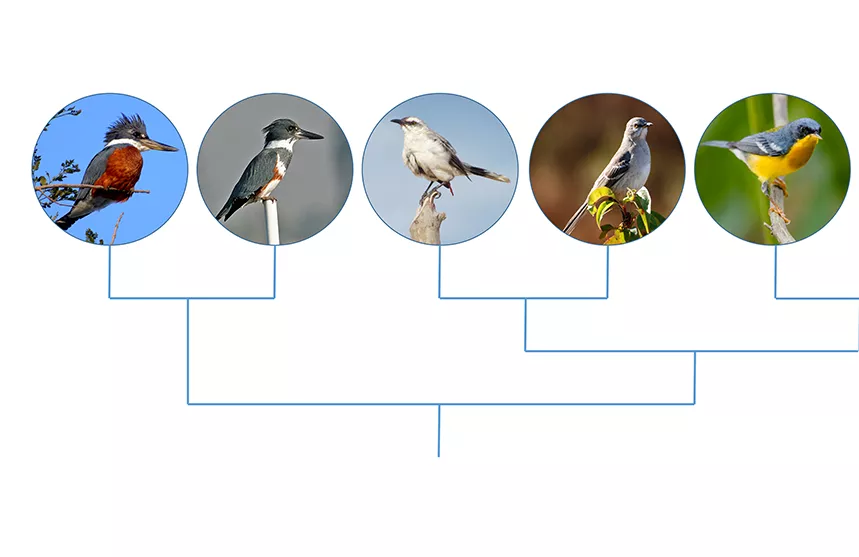Less Variation in Sizes of Birds in the Tropics Puts Them at Greater Risk from Climate Change

Climate change is a worldwide phenomenon with global impacts. Scientists who study the tropics are particularly concerned with how changing weather patterns will affect the species in those regions. This concern is borne from earlier researching suggesting that tropical species appear to be more sensitive to small changes in the environment.
A team of researchers including Bryn Mawr Assistant Professor of Biology Sydne Record has looked at the variation in the size of tropical birds as compared to their non-tropical “sisters” and found that there is less variable size among the tropical birds. This finding supports the idea that such species could be particularly impacted by climate change. The findings appear in Biology Letters.
“We really wanted to do two things with this research,” says Record. “One was to verify this earlier belief that there is less variation in body size among tropical species. The reason that’s important is because we know that when there’s less variation in a species’ body size, that species is at greater risk due to environmental change. The other goal of the research was to try to better understand why there’s less body-size diversity in the tropics.”
To conduct their research, the team created a “consensus tree” of bird species generated from 100 current such trees. They then looked for pairs of species nearest to each other on the branches, coming up with 2,119 pairs. Of those pairs, they were able to find 68 species pairs that had both a tropical and non-tropical species. An example of a pair is the Rufous winged sparrow and the Oaxaca sparrow.
After conducting an analysis of the pairs, the researchers determined that across all tropical-nontropical bird species pairs, the tropical members tended to have lower body-size variability. However, variation in body-size variability was poorly explained by both abiotic and biotic drivers; thus the mechanisms underlying the pattern are still unclear.
“While we still don’t fully understand the causes for the variation, our findings supported our prediction and suggest that tropical birds will be more susceptible to ongoing human-caused environmental changes,” says Record.
The researchers plan to continue to investigate these patterns across other taxa.
Funding for this research comes from an NSF Emerging Frontiers in the Biology Directorate EAGER award for analyzing early National Ecological Observatory Network data.
Quentin D. Read, a postdoctoral researcher at Michigan State University co-mentored by Record, is the lead author of this study. In addition to Record, the study’s other authors are Benjamin Baiser of the Department of Wildlife Ecology and Conservation, University of Florida; John M. Grady, also a postdoc at Bryn Mawr and Michigan State; Michigan State Assistant Professor Phoebe L. Zarnetske; and Jonathan Belmaker of Tel Aviv University.